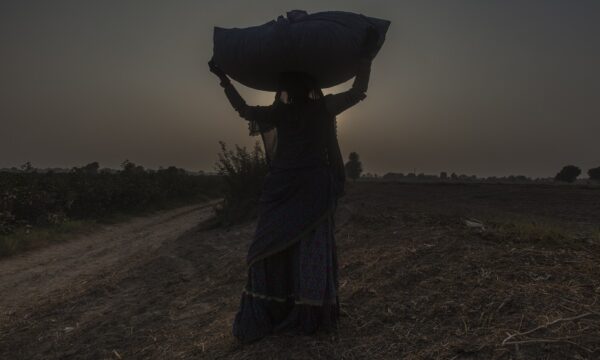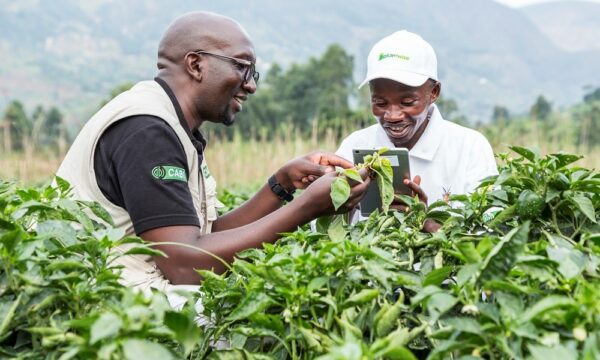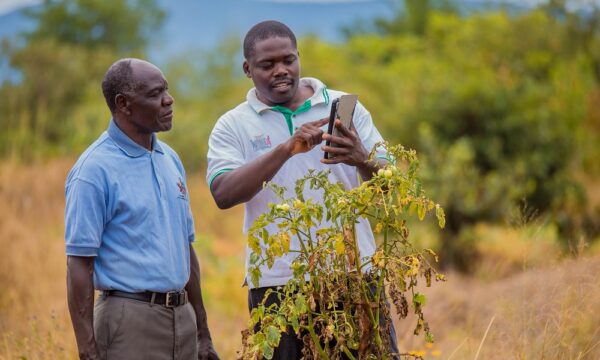A young man in drought conditions in Ethiopia (Author: USAID African Bureau)
We are all told to improve our diet; increasing our fruit and vegetable consumption and reducing our red meat intake. But a new study, ‘Global and regional health effects of future food production under climate change; a modelling study,’ published in The Lancet has revealed that climate change may make eating our 5 a day more challenging, and that subsequent dietary shifts and changes in body weight will lead to more than half a million additional deaths worldwide by 2050.
The research, led by a team from the Oxford Martin School, analysed the effects of climate change on dietary composition and body weight by combining a series of computer models. The models looked at how global changes in temperature and rainfall are likely to affect crop yields, and how these changes in yields will impact global food production, consumption and trade. From this, estimates of commodity-specific food availability were obtained, which the researchers used to calculate changes in the number of deaths associated with shifts in diet composition and body weight.
The models projected that by 2050 climate change will lead to a 3.2% reduction per person in global food availability, equivalent to 99 Kcal. Furthermore, fruit and vegetable consumption will fall by 4%, equating to a reduction of 14.9 g per person per day, and red meat consumption will decline by 0.7% or 0.5 g per person per day. Although these reductions may appear quite modest, these changes are projected to cause 529,000 climate related deaths worldwide by 2050. By far, the biggest risk factor was the reduction in fruit and vegetable consumption causing twice as many deaths than the increased prevalence of underweight people. The fall in red meat consumption mitigated part of this health burden, but not to a large degree. Lower caloric availability increased the total number of underweight people, leading to around one quarter of a million additional deaths, but this number was counteracted by a decline in the number of overweight and obese people which caused a similar number of avoided deaths.
Of course, behind these global patterns large regional and income related variation was identified. A reduction in fruit and vegetable consumption was the main risk factor in the low and middle income countries of the Western Pacific, Europe and Eastern Mediterranean, but also the high income countries. An, increase in the number of underweight people was the greatest health burden in low and middle-income countries of South-East Asia and Africa, where the additional deaths due to more underweight people exceeded the reductions in deaths due to fewer people being overweight or obese. In total, of the 155 countries included in the study, 118 experienced a climate-related increase in the number of deaths, with regions of Southeast Asia and the Western Pacific hit hardest, in particular China and India.
So, is there anything that can be done to redress the balance? Cutting our emissions could have a significant impact. The climate change scenario used in the study was a high emissions pathway. If the models were re-run to meet current emission targets then climate-related deaths would be reduced by a third, and if we were even more stringent, keeping in line with the ambitions laid out in the recent Paris Agreement, the number of deaths would fall by 71%, to around 153,000 extra than in a world with no climate change.
Another approach would be the introduction and strengthening of public health programmes aimed at prevention and treatment of ill health resulting from imbalanced diets. These programmes should consider ways to increase the level of fruit and vegetable consumption instead of being wholly concerned with quick routes to increase calorific intake. For this to work we drastically need to expand our crop base; currently we rely on a handful of staple crops, with just four crops (rice, wheat, maize and soyabean) providing most of the world’s food. However, we currently know significantly less about the effects that climate change will have on the more minor crops and, as is highlighted in the study, this is an area that would benefit greatly from future research.
I thought I would end this post with a few examples of how CABI is helping tackle some of the issues relating to climate and diet:
- CABI and its partners in the DFID mNutrition initiative are working together to develop nutrition content for a mobile phone based messaging service. The service will operate across 12 developing countries in Africa and South Asia and will provide both agricultural and health-based information to bring about increased knowledge on good nutritional practices. The initiative will focus especially on women and vulnerable groups in rural communities.
- On 7th December 2015, as part of the COP21 Climate Conference, CABI signed the Declaration for Agricultural diversification. The declaration was launched by Crops for the Future to build agricultural resilience and food security for future climates. It champions moving beyond our reliance on just four crops and seeking ‘resilient diversity’ from a much wider range of crops and cropping systems. The declaration also recognizes the importance of nutritional security, highlighting how many underutilised crops are rich in micronutrients and could therefore enhance the nutritional quality of our diets.
- Lastly, let’s look at the Good Seed Initiative. African indigenous vegetables are essential for food security and income generation in Africa; furthermore, these underutilised crops could make a substantial contribution to human nutrition and dietary diversity. As well as promoting their consumption, the initiative aims to make these indigenous vegetables more available to farmers by improving current seed systems.
Related News & Blogs
Reflections on COP 28: Conference brought food and farmers to the forefront of climate change negotiations
After two weeks of discussions, the COP 28 UAE Presidency brought the curtain down on this major event. Dr Lydiah Gatere, CABI’s Climate Change Expert, Africa, attended and took part in a panel discussion – hosted by the Standards and Trade Development…
19 February 2024





